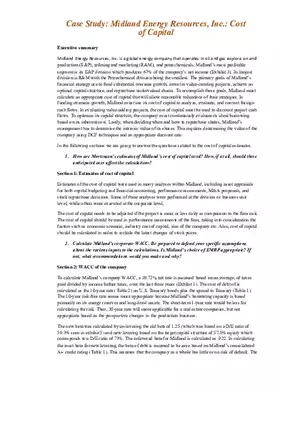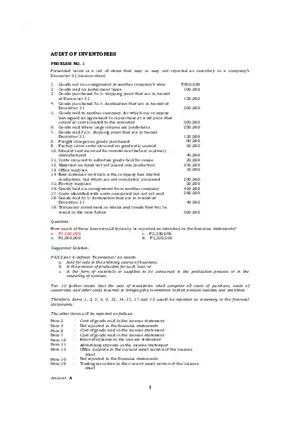Lecture Note
Unlocking Ethical Excellence - Navigating Principles In Business
-
University:
Swansea University -
Course:
FIN520 | Financial Ethics and Accountability Academic year:
2020
-
Views:
418
Pages:
1
Author:
Thomas G.
Related Documents
- A Revolution in Financial Planning
- The Fixed Income Market (Part 1)
- Alternative Methods for Evaluating Individual Projects
- The Economics of the Nuclear Fuel Cycle: (1) Once-Through Fuel Cycle
- An Illustration of the Use of Depreciation
- Insurance and Risk
- 22.812J Managing Nuclear Technology: Problem Set 4 Solutions
- 15.433 Solutions to Assignment 1
- The Fixed Income Market (Part 2)
- Financial Networks and Contagion
- Key Concepts in Financial Risk Management
- Entrepreneurial Finance and Non-diversifiable Risk Chapter 3
- Public Service Loan Forgiveness
- Structural Changes in Regression Error Variance and Coefficients
- Performance of Czech Companies by Ownership Structure
- Asset Bubbles and Monetary Policy Figures and Appendix
- Entrepreneurial Finance and Non-diversifiable Risk Chapter 2
- Debt Policy Under Constraints: Philip II and Genoese Bankers
- Are ISS Recommendations Informative
- Financial Networks and Contagion - Cascades Larger but Less Frequent
Report
Tell us what’s wrong with it:
Thanks, got it!
We will moderate it soon!
Report
Tell us what’s wrong with it:
Free up your schedule!
Our EduBirdie Experts Are Here for You 24/7! Just fill out a form and let us know how we can assist you.
Take 5 seconds to unlock
Enter your email below and get instant access to your document












